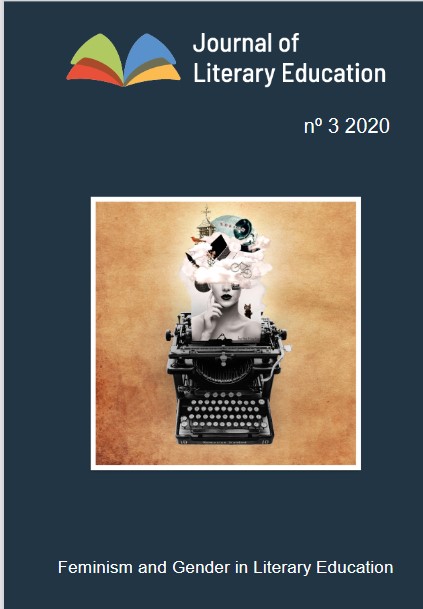Editorial: Feminism and Gender in Literary Education
DOI:
https://doi.org/10.7203/JLE.3.19203 Abstract
Abstract
The starting point for the making of this current issue were some fundamental questions about the intersection of Feminist Criticism and Gender Theory with Education: What might it mean to read and teach literature through the prism of feminist criticism and/or gender theory? In which texts, ways and methods can we integrate a balanced gender approach into literary didactics? How and in which teaching approaches can we produce some powerful feminist readings of the literary texts, whether they are texts long established by tradition, or contemporary and multimodal ones, belonging to popular culture? And how can these concerns about feminism and gender be adequately addressed and embedded into the literature classroom? Although we knew that all the previous questions could not be effectively addressed in one single issue, we still envisaged a publication with insightful contributions to the overall theme of Feminism and Gender in Literary Education.
 Downloads
Downloads
Downloads
Published
-
Abstract935
-
PDF795
Issue
Section
License
![]()
This work is licensed under a Creative Commons Attribution-NonCommercial-NoDerivatives 4.0 International License.
Authors who publish with this journal agree to the following terms: Authors retain copyright and grant the journal right of first publication with the work simultaneously licensed under a Creative Commons Attribution License that allows others to share the work with an acknowledgement of the work's authorship and initial publication in this journal. Authors are able to enter into separate, additional contractual arrangements for the non-exclusive distribution of the journal's published version of the work (e.g., post it to an institutional repository or publish it in a book), with an acknowledgement of its initial publication in this journal. Authors are permitted and encouraged to post their work online (e.g., in institutional repositories or on their website) prior to and during the submission process, as it can lead to productive exchanges, as well as earlier and greater citation of published work (See The Effect of Open Access).



